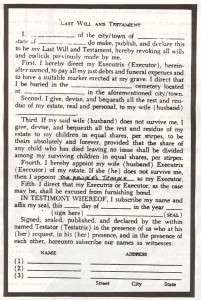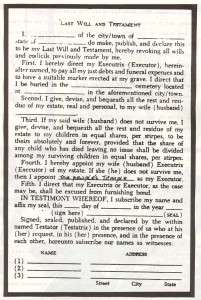NEW TAX LIABILITY FOR RESIDENT TAXPAYERS

The Spanish Government passed on the 15th of November 2012 a Royal Decree providing the liabilities to inform about assets and rights located abroad. This information is available at http://www.boe.es/boe/dias/2012/11/24/pdfs/BOE-A-2012-14452.pdf.
This liability only affects resident taxpayers; non-residents are not liable for submitting this tax return.
Any account in financial institutions and any kind of real property or real property rights of ownership shall be declared, as well as any securities, interests, insurances and incomes, which are deposited, managed or obtained abroad.
Taxpayers shall inform about these assets and rights which they own abroad as at 31st of December 2012.
This tax return shall include any kind of assets and rights provided that the individual value for each of them exceeds EUR 50,000. This includes the following:
– All accounts in financial institutions—account balances as at 31st of December and average balances for the last quarter.
– Real property, indicating the purchase date and acquisition value.
– Real property rights of ownership, indicating the opening or cancellation date.
– Securities, interests, insurances and incomes which are deposited, managed or obtained abroad as at 31st of December of each year.
The submission of this informative tax return in successive years is only compulsory when the established limit have increased more than EUR 20,000.
The requirements of this tax liability shall be met between the 1st of January and the 31st of March in the following year to which this information refers.
This tax liability refers to both individual residents and bodies corporate which are liable for corporate tax in Spain. Tax form 720 shall be electronically submitted to fulfill the requirements of this tax return.
The recent approval of this tax liability to inform about assets located abroad represents a new control method for liable taxpayers in order to uncover informal economy, tax evasion and money laundering.
Fines are significant and they do not refer to the legal o illegal way of obtaining those assets, but to the fact that they are declared or not. The failure to submit the informative tax return will be considered a very serious infringement and the corresponding sanctions will be applied. This implies the payment of a EUR 5,000 set fine for each point of information which is not declared and the minimum fine amounts to EUR 10,000. The fine for individual taxpayers amounts to EUR 100 for each point of information and the minimum fine amounts to EUR 1,500, where the informative tax return had been submitted after the deadline without previous notification from the Spanish Tax Authority.
It is worth stressing the heavy fines, including for declaration of imprecise information. The above mentioned Royal Decree does not allow misunderstandings. A single mistake may result in a heavy fine. The declaration of incomplete or imprecise information entails the same sanctions. The fact that these assets are correctly declared in the country of origin will never be considered a ground for excluding the liability to pay the fine.
It is also determined that the tax liability to inform shall not be time-barred in respect to the date of origin of the assets and the application of this rule.
If this is your case, please do not wait any longer and prepare all the necessary information for submission to the Spanish Tax Authority in the following days. If you have any doubt or enquiry regarding this issue, please do not hesitate to contact us.
Author: Francisco Delgado Montilla, C&D Solicitors (lawyers)
Torrox-Costa (Malaga/Costa del Sol/Andalucia)


















